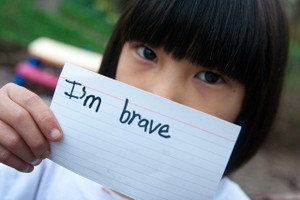Considering Structural Family Therapy for Children of Alcoholics & Addicts in Early Recovery
He’s trembling in his seat, 30 days clean and trying to convince himself that the worst is behind him. I agree that physically this is true but otherwise the work is just beginning. We talk about his family. He has a wife and three children. I ask what their involvement in treatment could look like. He studies my floor and stammers, “I was kind of hoping to keep them out of all this.” I ask if they were protected from seeing him active. He begins to cry and shakes his head.
I’ve heard a lot of nice sounding theories from other parents: “They never saw me drink. We hid it from them.” “They thought I was just sick. They didn’t realize it was because of drugs.” “I only used when they were at their dad’s.”
Kids bear witness to insanity even when they don’t witness abuse of substances. We hope they come out unscathed, but this is never the case.
Whatever impacts one person in a family affects all members of a family. Kids may be angry, scared, and/or hurt but they are always powerless. They want mom/dad to be healthy and they have control over neither what they want nor what they fear.
Support Guidelines - By Age Group
Kids always know more than we want to believe they do. What they can make sense of varies due to their age. A crash course in human development allows us to consider how to best support them. This is a crude outline but in a nutshell it’s what I advocate:
Under Six
We refer to the person in recovery as having been “sick” and understand that at best their understanding of addiction is limited to cause and affect. They grasp that the person in recovery behaves differently at times and/or was unavailable to them (emotionally or otherwise). We look for signs that a child may not have bonded or may struggle to feel comfortable/safe with the person in recovery.
Seven to Eleven
We look for kids to have a concrete understanding of addiction but we understand that a lot of the abstract aspects of competing needs, feelings, and relational issues may not make sense to them. Developmentally they still learn and understand the world in very black and white terms. We are honest with them about what the problems are and we look for signs of anxiety, a tendency to hide their emotions, and conflicted feelings over why their family functions as it does.
Twelve through Adulthood
We look for adolescent and adults to have an understanding of what addiction is and expect that they have ability, but perhaps not willingness, to consider competing needs and feelings. We are completely honest with them though we may omit details that evoke painful imagery or unnecessarily burden them. We look for signs that they may have knowingly or unknowingly enabled the person in recovery. We examine their attitudes toward alcohol and drug use and are alert to the possibility that they may be abusing substances. We expect that very often adolescents and adults are resistant to change and may unwittingly act to maintain status quo.
I have nearly endless patience and empathy for the kids. I have far less for their parents/caregivers. Helping the kids to understand requires that the adults get right with the truth. Everything else is problematic at best.
Consider Structural Family Therapy
It’s darkly amusing that so many of the recovering alcoholics and addicts I work with are amazed to find that their children have learned to behave in ways that are manipulative and dishonest. They can’t imagine where the kids learned to act this way and they have the audacity to be outraged by disrespect.
I’m a big fan of Structural Family Therapy. It’s a modality designed to ensure that we get the adults on the same page and then work to bring the kids aboard. Divisions and alliances are common in families of addiction. I never look for the kids to do what the adults can’t or won’t and I don’t tolerate a lot of hypocrisy from parents. Families function best with a top down approach. Splitting (divide and conquer strategies) gives kids control they may crave but cannot manage in a healthy manner.
It’s not only the recovering addict/alcoholic that faces change and transition. Involving kids in treatment and maintaining very active and open communication mitigates fears of change and fears of the unknown. I urge caregivers to solicit the views and concerns of kids and to be completely honest with them. Families can be rebuilt, but only when the needs of all members are identified and fulfilled.
 Jim LaPierre
Jim LaPierre
Post a comment 0
Copyright Notice
We welcome republishing of our content on condition that you credit Choose Help and the respective authors. This article is licensed under a Creative Commons License.
Helpful Reading:
-
 How to End an Addiction-Damaged Relationship
How to End an Addiction-Damaged Relationship
What do you do when the person you love gets consumed by a disease (addiction) that's beyond your control? How do we know when it's time to leave and how do you manage to adjust to life without your actively addicted partner?
Read the complete article -
 Love & Recovery: Rebuilding a Relationship
Love & Recovery: Rebuilding a Relationship
Recovery brings a lot of changes and upheaval. Couples can grow and thrive throughout recovery by being mindful, establishing boundaries and expressing needs.
Read the complete article -
 Rebuilding a Relationship after Sobriety
Rebuilding a Relationship after Sobriety
Your partner's in recovery... now what? Tips on rebuilding a relationship while making your own needs a priority: building trust - one day at a time, setting measurable goals to work toward, taking care of yourself... rather than your partner.
Read the complete article




